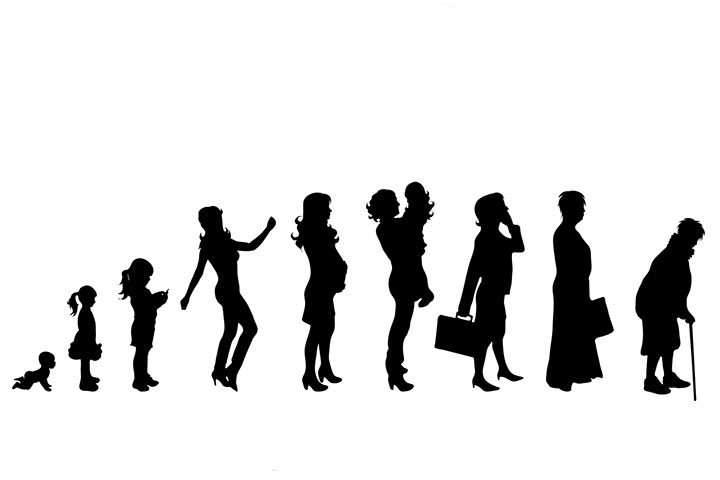At a time when various movements have been reenergized to take new aims against sexual abuse, workplace inequality, and political threats to women’s rights, another common cause has surfaced: Alzheimer’s disease. A statistic commonly bantered about is that in the United States, every 65 seconds a new brain develops Alzheimer’s. Most people assume the prevalent, mean-spirited disease knows no gender bounds, but another statistic shocks: two-thirds of those new brains affected belong to women. Perhaps signaling double trouble for the future, two-thirds of those who are currently Alzheimer’s caregivers are also women. A wake-up call: By 2060, 14 million Americans will have Alzheimer’s, of which 9 million will be women.
Additional numbers that herald that the disease seems to have its eye on the gentler sex:
- A woman in her 60s is twice as likely to develop Alzheimer’s than breast cancer during the course of her life, and
- After age 60, a woman has a 1 in 5 chance of developing the disease.
WAM is Born
This awareness fueled the formation of the Women’s Alzheimer’s Movement (WAM). Its aim is deep and broad: to educate the public about Alzheimer’s, inform women of their increased risks for it, influence scientists to conduct women-based research and help raise the money to support it, and share the stories of families affected by the disease. The word is spread in every way imaginable: through live events, broadcast, film, print, digital, and social media. The organization’s website includes information on diet, exercise, and lifestyle changes to promote brain health, as well as a downloadable pamphlet, The WAM Guide loaded with facts about Alzheimer’s and tips on nutrition, well-being, and caregiving.
The organization was founded by Maria Shriver, whose father, Sargent Shriver, was diagnosed with the disease in 2003. We were still the dark ages, awarenesswise. “People just didn’t talk about it when Alzheimer’s hit their families. They whispered about it, a diagnosis shrouded in shame,” Maria Shriver recalled. “There was little information and even less hope.”
In 2022, WAM partnered with the Cleveland Clinic, one of the world’s leading medical and research centers. Today, the Women’s Alzheimer’s Movement at Cleveland Clinic is the preeminent organization for women and Alzheimer’s disease (for appointments, contact The Women’s Alzheimer’s Movement Prevention and Research Center at Cleveland Clinic. An online survey conducted by Parade/Cleveland Clinic in June 2024 showed an increased awareness (69%) by the US population about the risk of developing brain and memory issues, but interestingly do not get medical care when symptoms present.
A Whirlwind of Action
A well-known and well-connected journalist, she used her well-earned bully pulpit to change that dire prognosis and advocate for Alzheimer’s awareness.
Shriver wrote the book What’s Happening to Grandpa? Published in 2004, it won kudos for its gentle teaching about aging and illness.
Despite being cautioned that “Alzheimer’s was a downer” and would make for “bad TV,” she then became one of the executive producers of HBO’s “The Alzheimer’s Project.” The series documented both the scientific discoveries and devastating realities linked to the disease and attracted 11 million viewers when it first aired. One segment, “Grandpa, Do You Know Who I Am?,” based on her earlier book, and another titled “The Memory Loss Tapes,” both won Emmy Awards in 2009.
That same year, Shriver testified movingly before the Senate Special Committee on Aging, which was then charged with designing an action plan and being urged to increase funding to deal with the disease. She began simply: “I’m Maria Shriver, and I’m a child of Alzheimer’s.”
A ‘Front Burner’ Issue
Also in 2009, the first Shriver Report: A Woman’s Nation Changes Everything was published, a landmark study detailing societal changes as women made the historic leap of being half the U.S. workforce. That report also noted that many of the changes and inherent limitations on women were related to Alzheimer’s.
Among the findings related to unpaid women caregivers were that:
- Half were providing more than 40 hours of care per week; a third of those caregivers care for a friend or relative around-the-clock
- Nearly 41% said they had “no choice” in taking care of their loved one with Alzheimer’s, and
- Nearly 33% rated the physical stress level of caregiving as a “5” on a scale of 1 to 5.
The Shriver Report concludes with a plea and a threatening prediction: “The truth is that we simply must put Alzheimer’s on the front burner because if we don’t, Alzheimer’s will not just devour our memories. It will also break our women, cripple our families, devastate our healthcare system and decimate the legacy of our generation.”
Research Dollars to Fund and Improve Women’s Health
Recognizing the significant gaps in research on women’s health, the Biden Presidency in November 2023 launched the first-ever White House Initiative on Women’s Health Research — which fundamentally changed how the US will approach and fund research on women’s health. This was followed by an Executive Order signed March 2024 which directed the most comprehensive set of executive actions ever taken to improve women’s health research.
To close the research gap, the NIH prioritized its research on women’s health in a detailed Fact Sheet, titled, “Advancing Women’s Health Research and Innovation“. To that end, the NIH Office of Research on Women’s Health launched an innovative portal to simplify the process of compiling and accessing women’s health information by patients, caregivers, medical professionals, researchers, and the public. The NIH resource at the time of writing is in its infancy stage.
